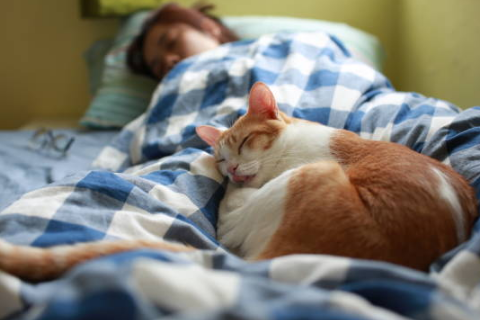We’ve all heard the classic sleep advice—dim the lights, stay off screens, keep the room cool. But what if the secret to a better night’s sleep is actually on your plate? According to sleep expert Todd Anderson, co-founder of Dream Performance and Recovery, what you eat and when you eat it can have a bigger impact on your sleep than you might think.
Timing Your Meals Right
One of Todd’s key tips for quality sleep is following the “three-hour rule”—finishing your last meal at least three hours before going to bed. Why? Because if your body is still busy digesting food when you’re trying to fall asleep, it can cause your blood sugar to spike and make it harder to rest. Todd explains that as your blood sugar tries to regulate, it can throw off your sleep cycle. The earlier you eat, the more time your body has to shift into rest mode.
Watch Out for Late-Night Sugar Cravings
We’ve all had those moments—craving something sweet before bed. But Todd advises steering clear of things like ice cream, which are packed with refined sugar and simple carbs. These can cause a sharp spike in blood sugar followed by a crash, creating a rollercoaster effect that disrupts your body’s natural rhythm and makes it harder to fall into deep, restorative sleep.

Can’t Avoid Eating Late? Try This
Life doesn’t always allow us to stick to the three-hour rule. Whether it’s a late dinner with friends or grabbing a bite after a long day, Todd has suggestions for these situations too. He recommends focusing on high-fiber, low-glycemic foods with a balance of protein and healthy fats. Think lean meats, veggies, or a handful of nuts. These types of meals help maintain blood sugar stability and support better sleep—even when dinner runs late.
Stay Flexible
The best part? Todd’s approach isn’t about rigid rules that keep you from enjoying life. He emphasizes not letting a strict sleep schedule get in the way of connecting with loved ones. Sleep is important, but so is balance. If dinner plans run late, don’t stress. Just make thoughtful food choices, enjoy the company, and remember—flexibility is key to a healthy lifestyle and a good night’s rest.
Bottom Line
When it comes to sleep, meal timing matters. Try to eat at least three hours before bed to avoid nighttime sleep disruptions. Avoid high-glycemic foods that can spike your blood sugar and mess with your sleep. If you do eat late, opt for balanced meals rich in protein, healthy fats, and fiber to help keep your sleep on track. But don’t strive for perfection—enjoy that dinner with friends. A well-rested life is about balance, and the best sleep habits support your ability to rest deeply while living fully.

